| Abbreviation | DBFB |
|---|---|
| Type | charity organization |
| Legal status | active |
| Purpose | advocate and public voice, educator and network |
| Headquarters | Toronto, Ontario |
| Location | |
Region served | Greater Toronto Area |
Official language | English French |
| Website | http://www.dailybread.ca |
Daily Bread Food Bank (DBFB) is a Canadian charity organization with a stated goal of ending hunger in Toronto by collaborating with all to eliminate food insecurity and advocate for solutions to end poverty. Founded in 1983, [1] the organization is based in Toronto, Ontario, and is one of the largest food bank organizations in Canada.
Daily Bread distributes fresh and shelf-stable food, as well as fresh-cooked meals, to over 200 food programs at 129 member agencies across Toronto. [2] Its network of agencies serviced nearly 3 million client visits in 2023.
Daily Bread Food Bank (in partnership with North York Harvest Food Bank) also publishes the influential Who's Hungry report, a profile of food insecurity in the City of Toronto. [3] This annual survey measures trends in food insecurity and poverty in Toronto to educate the public and spark policy change.
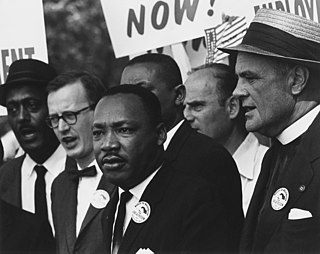
In politics, humanitarian aid, and the social sciences, hunger is defined as a condition in which a person does not have the physical or financial capability to eat sufficient food to meet basic nutritional needs for a sustained period. In the field of hunger relief, the term hunger is used in a sense that goes beyond the common desire for food that all humans experience, also known as an appetite. The most extreme form of hunger, when malnutrition is widespread, and when people have started dying of starvation through lack of access to sufficient, nutritious food, leads to a declaration of famine.

Food security is the state of having reliable access to a sufficient quantity of affordable, nutritious food. The availability of food for people of any class, gender or religion is another element of food security. Similarly, household food security is considered to exist when all the members of a family, at all times, have access to enough food for an active, healthy life. Individuals who are food-secure do not live in hunger or fear of starvation. Food security includes resilience to future disruptions of food supply. Such a disruption could occur due to various risk factors such as droughts and floods, shipping disruptions, fuel shortages, economic instability, and wars. Food insecurity is the opposite of food security: a state where there is only limited or uncertain availability of suitable food.

A soup kitchen, food kitchen, or meal center is a place where food is offered to the hungry usually for no price, or sometimes at a below-market price. Frequently located in lower-income neighborhoods, soup kitchens are often staffed by volunteer organizations, such as church or community groups. Soup kitchens sometimes obtain food from a food bank for free or at a low price, because they are considered a charity, which makes it easier for them to feed the many people who require their services.

A food bank is a non-profit, charitable organization that distributes food to those who have difficulty purchasing enough to avoid hunger, usually through intermediaries like food pantries and soup kitchens. Some food banks distribute food directly with their food pantries.
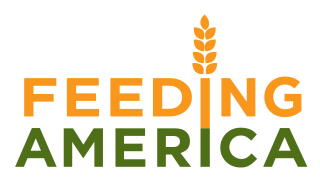
Feeding America is a United States–based non-profit organization that is a nationwide network of more than 200 food banks that feed more than 46 million people through food pantries, soup kitchens, shelters, and other community-based agencies. Forbes ranks it as the largest U.S. charity by revenue. Feeding America was known as America's Second Harvest until August 31, 2008.

Project Bread's Walk for Hunger is the oldest continual pledge walk in the United States and the largest annual one-day fundraiser to alleviate local hunger in Massachusetts.
George Weston Limited, often referred to as Weston or Weston's, is a Canadian holding company. Founded by George Weston in 1882, the company today consists of the Choice Properties real estate investment trust and Loblaw Companies Limited, Canada's largest supermarket retailer, in which it maintains a controlling interest. The company is majority owned by Wittington Investments, Ltd Canada, a holding company that the Weston family are the controlling share holders in. Retail brands include President's Choice, No Name and Joe Fresh. The former Weston Bakeries division, which owned the brands Wonder, Country Harvest, D'Italiano, Ready Bake and Gadoua, was sold off to FGF Brands in 2022.

Food rescue, also called food recovery, food salvage or surplus food redistribution, is the practice of gleaning edible food that would otherwise go to waste from places such as farms, produce markets, grocery stores, restaurants, or dining facilities and distributing it to local emergency food programs.
Second Harvest is Canada's largest food rescue charitable organization.

Canadian Feed The Children is a Canadian charity, based in Toronto, Ontario. It is a secular non-governmental organization (NGO), working in international development, and partners with community-based groups working to alleviate poverty in developing countries including Bolivia, Ethiopia, Ghana and Uganda, and in Indigenous communities in Canada. It is a registered Canadian charity with a mission to unlock children's potential through community-led action in Canada and around the world.
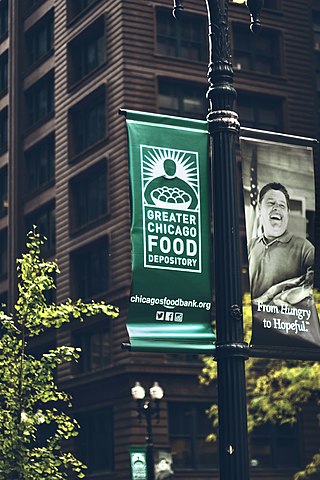
The Greater Chicago Food Depository (GCFD) is a nonprofit organization that fights hunger throughout Cook County, Illinois. The GCFD distributes donated and purchased food through a network of 700 food pantries, soup kitchens, shelters and community programs, serving more than 800,000 adults and children every year. In fiscal year 2016, the GCFD distributed more than 70 million pounds of nonperishable food, produce, dairy products, and meat - the equivalent of more than 160,000 meals every day. Of the $96,883,955 spent in 2016, over 90% went to direct food distribution programs.

Leket Israel, The National Food Bank, a registered nonprofit Israel-based charity, is the leading food rescue organization in Israel, serving 175,000+ needy people weekly. Leket Israel rescues surplus agricultural produce and collects excess cooked meals for redistribution to the needy throughout Israel via its network of 200+ nonprofit organization (NPO) partners.

There were 735.1 million malnourished people in the world in 2022, a decrease of 58.3 million since 2005, despite the fact that the world already produces enough food to feed everyone and could feed more than that.

Hunger in the United States of America affects millions of Americans, including some who are middle class, or who are in households where all adults are in work. The United States produces far more food than it needs for domestic consumption—hunger within the U.S. is caused by some Americans having insufficient money to buy food for themselves or their families. Additional causes of hunger and food insecurity include neighborhood deprivation and agricultural policy. Hunger is addressed by a mix of public and private food aid provision. Public interventions include changes to agricultural policy, the construction of supermarkets in underserved neighborhoods, investment in transportation infrastructure, and the development of community gardens. Private aid is provided by food pantries, soup kitchens, food banks, and food rescue organizations.
Chronic hunger has affected a sizable proportion of the UK's population throughout its history. Following improved economic conditions that followed World War II, hunger became a less pressing issue. Yet since the lasting global inflation in the price of food that began in late 2006 and especially since the financial crisis of 2009, long term hunger began to return as a prominent social problem. Albeit only affecting a small minority of the UK's population, by December 2013, according to a group of doctors and academics writing in the British Medical Journal, hunger in the UK had reached the level of a "public health emergency".

A Place at the Table is a 2012 film produced by Lori Silverbush and Kristi Jacobson, with appearances by Jeff Bridges, Raj Patel, and chef Tom Colicchio. The film, concerning hunger in the United States, was released theatrically in the United States on March 1, 2013.
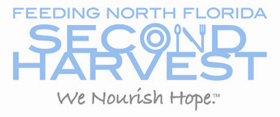
Second Harvest North Florida (SHNF) is a 501(c)(3) non-profit organization located in Jacksonville, Florida, that performs food rescue and redistribution to partner agencies in one quarter of Florida's 67 counties. The charitable organization has been active for over 30 years.
City Harvest is one of New York City's largest food rescue organizations. The organization collects food waste from restaurants, bakeries, and cafes.
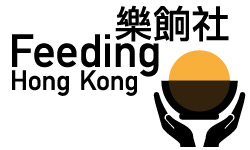
Feeding Hong Kong is a food bank in Hong Kong. It is an accredited member of The Global FoodBanking Network.
The Independent Food Aid Network (IFAN) is the UK network of independent food aid providers. Its membership includes over 550 independent food banks as well as other types of food aid provider. A charity since October 2018, IFAN supports and advocates on behalf of its member food aid organisations, collates independent food bank data, and campaigns for changes that would end the need charitable food aid in the UK through what's called a 'cash first' approach to food insecurity.